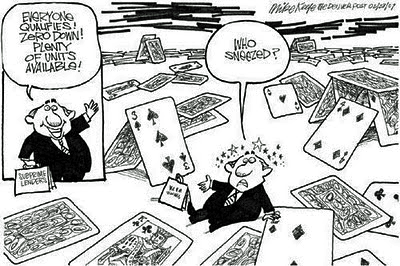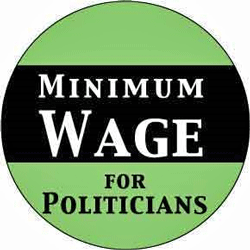
So how is it that an investment adviser and commentator like Tom Sullivan is facing a potential foreclosure on his home in Placer County? Shouldn’t someone who is an investment adviser know not to buy more than he can chew?
I guess you can blame the downturn in the economy for the majority of people who are now facing foreclosure. Many of them were lured by banks into taking out loans at low interest rates that increased to exorbitant rates in two years, making it impossible for the homeowner to continue making their mortgage payments. But, it’s hard to understand how a financial advisor can fall into such a trap, especially when he is working full time.
Here’s a portion of the story from the Sacramento Bee:
“The longtime Sacramento investment adviser and commentator, who now works for Fox Business Network, is attempting to unload his former Granite Bay home in a short sale after being threatened with foreclosure.
Sullivan and his wife, Caroline, have listed his five-bedroom, Mediterranean-style house on Wexford Circle for $1.15 million. They paid $2.5 million for the home in 2004 and took out a $1.6 million mortgage, according to Placer County property records and MetroList Services Inc.
Sullivan moved to New York in 2007 to become an anchor on the Fox Business Network.
The Sullivans missed their first mortgage payment last October, according to Foreclosures.com. The research firm says Chase Home Finance issued a default notice on the 8,200-square-foot home four months later, in February.
The default notice was the first step toward foreclosure. The Sullivans would avoid foreclosure if the short sale goes through, but all the proceeds from the sale would go to the lender, and the Sullivans would get nothing.
In a short sale, the lender lets the home sell for less than what’s owed on the mortgage. But a lender can reject short-sale offers.
Sullivan, in his written statement, said he’s presented “a number of offers from buyers to the bank and they have rejected them. At this time we are still submitting additional offers and (are) awaiting the bank’s decision.
“I stand to have a significant loss on the sale, as many people have had in this depressed real estate market,” he said.
MetroList records show that Sullivan first tried to sell the house in 2006, asking $2.9 million before the market collapsed.
Sullivan is one of several high-profile Sacramentans to run into personal real estate problems in recent months. Former Kings basketball star Ron Artest finalized a short sale on his Loomis home recently. His ex-teammate Kevin Martin, facing a possible foreclosure on his former home in Rocklin, is attempting his own short sale.”
Sullivan made his early reputation in Sacramento as founder of the Sullivan Group financial-planning firm 26 years ago. He hosted a popular financial and general news show on radio station KFBK (1530 AM), provided financial commentary on KCRA-Channel 3 and wrote an investment advice column for The Bee.
Besides anchoring a TV show for Fox Business, he hosts a weekday Fox radio program.”
To read more: Click Here Sacramento Bee







